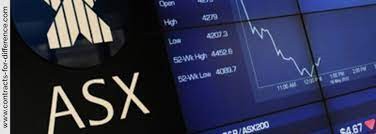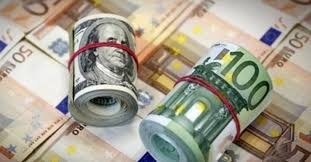ASX 200 ↑
The ASX 200 finished out the shortened week a shade higher, closing Thursday’s session at the 6,828 point level.
As IG Market Analyst Kyle Rodda put it ‘The final day of this holiday shortened trading week is so far moving in a positive fashion.’
The ASX is not open on Friday and Monday.
While Thursday’s session proved to be a relatively predictable affair for the ASX 200 and the All Ords – the All Technology index was more volatile – trading between 2,704 and 2,640 points during the session.
This comes as global tech stocks have faced significant selling pressure in recent weeks, as concerns over inflation and rising interest rates persist.
From a local perspective, over the last month Afterpay has seen its share price fall 14%, Wisetech has gained 5.5%, Xero has added 7% and Appen has dropped close to 1%.
You can trade ASX-listed tech stocks long and short with IG now. Click here to create an account now.
AMP share price ↑
Long-term AMP investors have likely been disappointed by the stock’s performance. Over the last five years, the wealth manager has seen its market cap shrink 75%. This comes as the company attempts to reinvent itself in the wake of the Hayne Royal Commission.
Is that reinvention finally here? The stock spiked on Thursday after the company announced that Francesco De Ferrari would be retiring as CEO. In his place, Alexis George is set to take the top spot.
Ms George has significant financial services experience, most recently serving as Deputy Chief Executive Officer at ANZ. Before that, she spent a decade at ING.
The AMP share price finished out the session up 4.74% in response to this news.
We discuss these developments, as well as look at how AMP’s sale of its private markets business is progressing, in more detail here.
Nasdaq ↑
Following a so-so month, the tech heavy Nasdaq 100 surged on Thursday, adding 238 points to close the session at 13,329 points. Big-cap tech posted firm gains: Amazon rose 2.19%, Facebook added 1.4% and Alphabet surged 3.34%. Interestingly however, Tesla finished out the session lower.
This comes even as US President Joe Biden says he plans to increase the corporate tax rate from 21% to 28%.
Taking a longer-term view, Biden’s tax plan should not be viewed as a radical move. In 2017, then US President Donald Trump cut the corporate tax rate from 35% to 21%. From that perspective, Biden’s cut looks to be more of a middle ground approach rather than a radical shakeup.
Despite that, tax avoidance, use of loopholes and low effective tax rates are just some of the issues that many have criticised big tech over in the last few years. According to S&P Global Market Intelligence, in 2019 the effective tax rate of the companies within the S&P 500 averaged out at 14.5%, significantly below the statutory rate.










